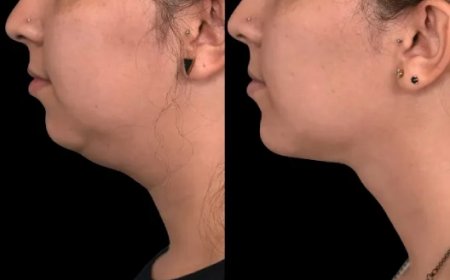How Does Sugar Affect Your Teeth and Body?
Discover how sugar impacts your teeth and body—from causing cavities and gum disease to increasing risks of obesity, diabetes, and heart issues. Learn the hidden dangers of added sugars and get practical tips to reduce intake and protect your health.

Sugar is a common ingredient in countless foods and drinks, often hidden under names like sucrose, fructose, and corn syrup. While sugar can be a source of quick energy, its overconsumption has far-reaching effects on both your oral health and overall body. Understanding how sugar affects your teeth and body is crucial for making informed dietary decisions and protecting your long-term well-being.
Sugar and Your Teeth: A Direct Threat
Your mouth is home to hundreds of species of bacteria, some of which are beneficial and others potentially harmful. When you consume sugary foods or beverages, these bacteria feed on the sugar and produce acid as a byproduct. This acid can erode tooth enamel, the protective outer layer of your teeth.
1. Tooth Decay (Cavities)
Tooth decay is one of the most immediate and visible effects of sugar. When acid attacks the enamel repeatedlyespecially with frequent snacking or sipping sugary drinkssmall holes, or cavities, begin to form. If untreated, cavities can lead to more severe dental problems such as tooth infections, abscesses, and even tooth loss.
2. Plaque Formation
Sugar also contributes to the formation of plaque, a sticky, colorless film of bacteria that constantly forms on your teeth. If not removed by regular brushing and flossing, plaque hardens into tartar, which can only be removed professionally. Plaque buildup can cause gum disease and further enamel erosion.
3. Gum Disease
High sugar consumption is linked to an increased risk of gingivitis (early gum disease) and periodontitis (advanced gum disease). As bacteria multiply, they can inflame and damage gum tissues, leading to bleeding, bad breath, and even tooth mobility.
Sugar and Your Body: The Hidden Dangers
Beyond oral health, the effects of sugar ripple through virtually every system in the body. While small amounts of natural sugars from fruits and dairy are typically not harmful, the overconsumption of added sugars can be detrimental.
1. Blood Sugar Spikes and Crashes
Simple sugars are rapidly absorbed into the bloodstream, causing a spike in blood glucose levels. This prompts the pancreas to release insulin to help cells absorb the sugar. Over time, frequent spikes and crashes can lead to insulin resistance, a precursor to type 2 diabetes.
2. Weight Gain and Obesity
Sugar-laden foods are often high in calories but low in nutrients. Excess sugar, particularly in the form of sugary drinks and processed snacks, contributes to weight gain. The body converts unused glucose into fat, especially around the abdomen, increasing the risk of metabolic syndrome and heart disease.
3. Increased Risk of Heart Disease
Excess sugar intake is associated with higher levels of triglycerides, inflammation, and high blood pressureall risk factors for heart disease. A diet high in sugar can also lower HDL (good cholesterol) and raise LDL (bad cholesterol), further endangering cardiovascular health.
4. Liver Damage
Fructose, a common sugar found in processed foods, is metabolized in the liver. When consumed in excess, it can overwhelm the liver and be converted into fat. This contributes to non-alcoholic fatty liver disease (NAFLD), which can progress to more serious liver conditions.
5. Accelerated Aging and Skin Issues
Too much sugar in the bloodstream can bind with proteins in a process known as glycation, which damages collagen and elastinproteins responsible for skin firmness and elasticity. This process can lead to premature aging and increase the likelihood of developing acne.
6. Impaired Brain Function
High sugar intake has been linked to poor memory, reduced cognitive function, and increased risk of depression. The brain, much like the rest of the body, suffers from inflammation caused by excess sugar, which may also affect learning and emotional regulation.
The Sugar Trap: Hidden Sugars in Everyday Foods
One of the biggest challenges in controlling sugar intake is identifying hidden sugars in processed and packaged foods. Items like flavored yogurt, granola bars, salad dressings, and even pasta sauces often contain significant amounts of added sugar.
Tips to Reduce Sugar Intake:
-
Read Labels Carefully: Look for hidden sugars listed under names like maltose, dextrose, and high-fructose corn syrup.
-
Choose Whole Foods: Prioritize fresh fruits, vegetables, whole grains, and lean proteins.
-
Limit Sugary Drinks: Swap sodas and energy drinks with water, herbal teas, or sparkling water with a splash of citrus.
-
Cook at Home: Preparing your meals allows you to control what goes into your food.
-
Use Natural Sweeteners Sparingly: Honey and maple syrup are better alternatives, but they still count as added sugars.
Finding a Healthy Balance
Sugar isnt inherently evilit becomes problematic when consumed in excess. The World Health Organization recommends limiting added sugars to less than 10% of your daily calorie intake, with an ideal target of 5% for additional health benefits.
By understanding how sugar impacts your teeth and body, youre better equipped to make informed choices that promote long-term health. Whether its cutting back on soft drinks, choosing whole fruits over candies, or sticking to regular dental hygiene routines, small steps can lead to big improvements.
Best Dentist in Lahore Book Online Appointment
Conclusion
Sugar has a powerful effect on both your oral and overall health. From tooth decay to weight gain, and heart disease to cognitive decline, the risks are real, but also preventable. Awareness is the first step. With mindful eating, smart choices, and regular dental care, you can enjoy the occasional sweet treat without compromising your health. Remember, its not just about avoiding sugarits about nourishing your body with foods that help you thrive.









































